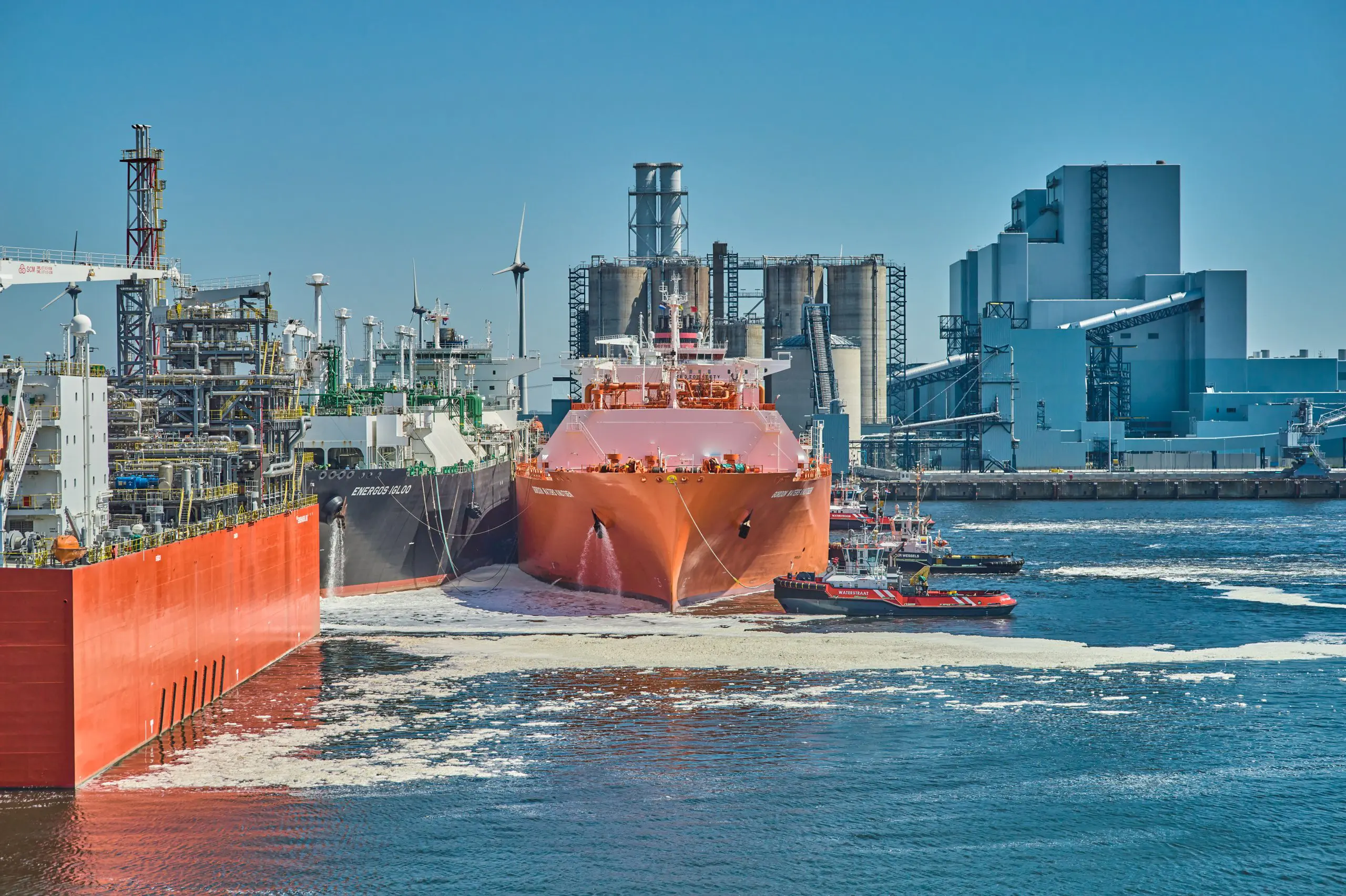This story requires a subscription
This includes a single user license.
According to shipment data provided by Gasunie to LNG Prime, the FSRU-based facility received 28 ships in the January-June period of this year, or 4,419,390 cbm of LNG.
This compares to 24 ships and 3,523,390 cbm of LNG in the first half of last year.
During the first half of this year, the facility received three LNG cargoes from Trinidad and Tobago’s Atlantic LNG terminal, while 25 shipments were sourced from the US.
The Eemshaven LNG hub consists of two chartered floating storage and regasification units – the 170,000-cbm FSRU Energos Igloo, owned by Energos Infrastructure, and the 26,000-cbm barge-based FSRU Eemshaven LNG, owned by Exmar.
It is the first FSRU-based terminal in the Netherlands and the second LNG import terminal in the country after Gate.
The LNG hub has a nameplate capacity of 8 billion cubic meters and supplies natural gas to capacity holders UK-based Shell, Czech utility CEZ, and France’s Engie.
Shell booked 4 bcm per year of the capacity, CEZ reserved 3 bcm per year, and Engie booked the rest.
Highest level of LNG imports of any EU country
In the first half of 2025, the total amount of natural gas transported in the Netherlands increased by 9.2 percent compared to the same period in 2024, according to Gasunie.
A total of 32.9 billion cbm of natural gas was transported, corresponding to an energy volume of 354 TWh.
Gasunie said this increase was mainly due to higher transport volume towards gas storage facilities and an increase in cross-border transport.
The company said that the Netherlands had the highest level of LNG imports of any EU country in May and June, with 90 percent of the combined capacity of the LNG terminals in Rotterdam and Eemshaven being used.
Eemshaven LNG extension
Last year, Gasunie and Vopak, together with the Dutch Ministry of Climate Policy and Green Growth (formerly the Ministry of Economic Affairs and Climate Policy), announced that they would look into the possibility of keeping the Eemshaven terminal in operation longer.
Currently, the LNG import contracts will end in the second half of 2027.
Earlier this year, Gasunie and Vopak launched an open season to market terminal capacity following “strong interest” by parties in the market consultation last year.
Gasunie stated on Monday that it expects a final decision on the extension by the end of this year.

